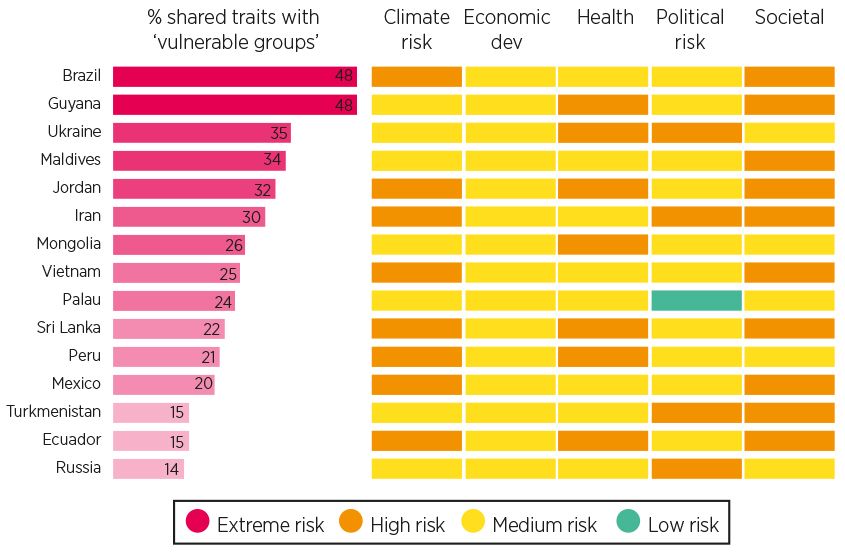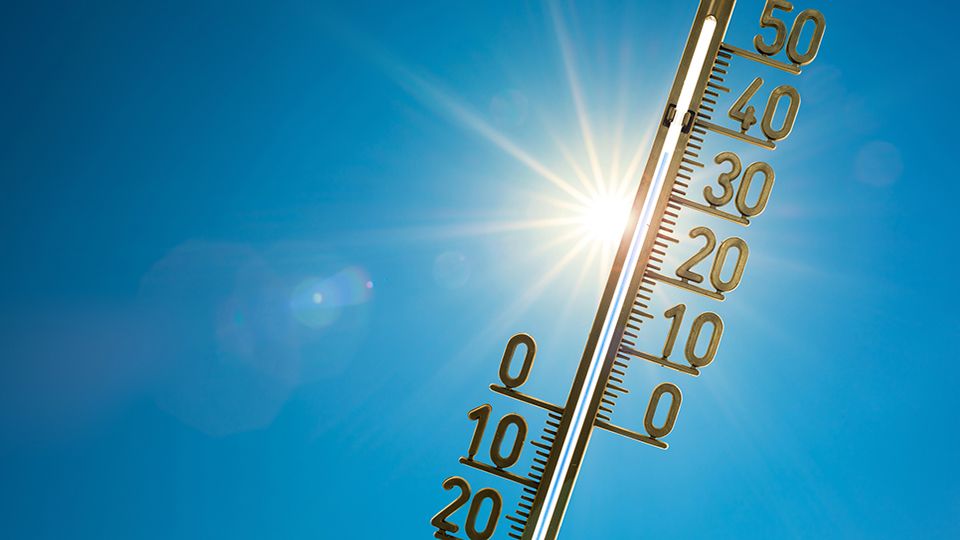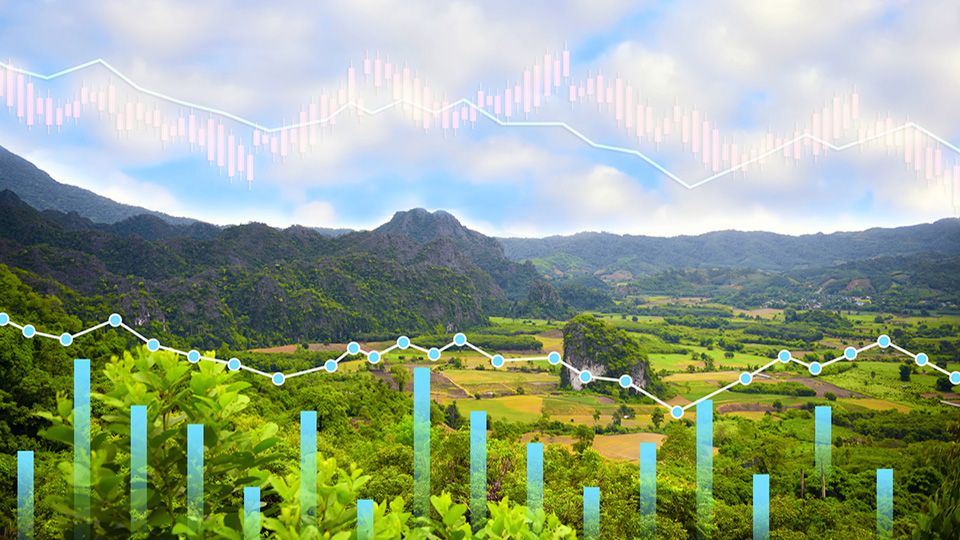The world is not ready for ‘cascading’ climate risks that will impact societies, populations and businesses, a report has warned.
Verisk Maplecroft’s Environmental Risk Outlook 2022 predicts more frequent extreme weather events will trigger a cascade of risks including food insecurity, conflict, and political instability, for which the world is “woefully unprepared.”
The study evaluated the performance of 196 countries on 32 structural and dynamic risk factors that will be crucial to combat the threats presented by climate change.
The data splits the world into three groupings: ‘insulated’, ‘precarious’ and ‘vulnerable’ nations. While it predicts that no country will be immune, developing economies such as India, Indonesia and South Africa are especially at risk. There are “potentially severe implications” for the stability of these economies and societies.
Precarious economies
Brazil, Mexico and Russia are in the ‘precarious’ grouping and could suffer instability from the secondary effects of climate risk, such as civil unrest, mass migration and resource security.
Small shifts in risk factors could tip ‘precarious’ countries into the ‘vulnerable’ group

The world’s wealthiest nations, including the US, Japan and UK, are in the ‘insulated’ group, but risks will traverse borders and regions, creating new geopolitical flashpoints, the study warns.
“Organisations and governments have extensive risk mitigation plans for physical climate threats, yet the lack of investment in assessing secondary risks means most are woefully unprepared to deal with the political, economic, and developmental impacts of a warming planet,” said Will Nichols, Verisk Maplecroft’s head of climate risk and resilience.
Global conflict
Climate change also poses a risk to public health in several countries including Mexico, Peru, Ukraine and Vietnam, where there could be rising heat stress and greater prevalence of disease.
Meanwhile, geopolitical risks could rise as Russia, for example, tries to deal with melting of the permafrost that supports its Arctic oil and gas infrastructure.
“Such conditions are ripe for unrest, violence, and populism that could again be channelled into regional posturing and war,” the report said.
Mass migration is already happening, and other risks are not far over the horizon. But governments are already battling other crises and do not have the scope to prepare.
“It’s not just governments that have a blind spot to these threats,” added Nichols.
“The majority of businesses are not currently factoring cascading climate impacts into scenario analysis and risk management approaches – that needs to change if they are going to build resilience in the face of an uncertain future.”







